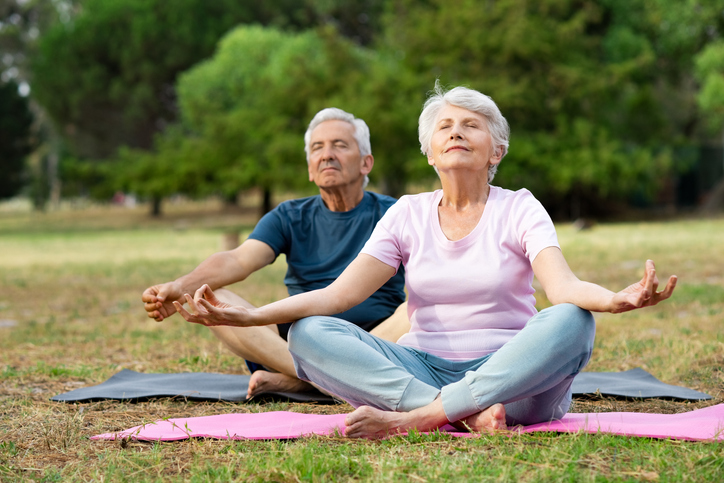
If you ask a group of seniors what spirituality means to them, you may receive several unique answers and interpretations (Erichsen 2013). However, there are common threads, and many describe spiritual wellness as “being connected to something greater than yourself and having a set of values that guide your actions” (“Spirituality and Aging” 2019). Trained wellness counsellors can reference this idea to create spiritual wellness plans based on individuals’ situations and goals.
An individual’s spiritual wellness needs may also change over time, meaning that assessments and plans require updates and adjustments as clients grow mentally, physically, and emotionally. For example, many seniors go through the change of moving from a family home to a long-term care facility, and this transition may be eased by spiritual wellness counselling. Keep reading to learn more about spiritual wellness for seniors.
Assess Spiritual Wellness When You Become a Wellness Counsellor
For seniors, “understanding individual spiritual perspectives becomes increasingly important, given the issues of loss, physical illness and mortality” (Lavretsky 2010). In one study, researchers also observed that when they interviewed seniors, several individuals wept because they had never talked about their spiritual needs, and the process of doing so was “liberating” (Erichsen 2013).
The wellness leadership skills you develop when you earn a diploma in wellness counselling will support you as you guide a senior client through self-reflection questions they may not have talked about before. These assessment questions could include the following: Where do you find comfort? What gives you hope? What gives your life meaning and purpose? (Smith n.d.).

Studies and Connections
A study that did a literature review of a decade of other studies found that “spirituality and religion appear to slow cognitive decline, and help people use coping strategies to…have better quality of life” (Ocèane et al. 2015). While there is not necessarily a causal link, “higher levels of spirituality have been linked to increased compassion, strengthened relationships, and improved self-esteem” (“Spirituality” n.d.).
The previously mentioned study by Erichsen asked how spiritual needs related to life satisfaction and mood states. Studies like that one and others provide important observations about what contributes to spiritual wellness and how these things are interconnected. However, when you become a wellness counsellor it is also possible to ask individual senior clients about how these things connect for themselves. It was also notable that many seniors also did not characterize spiritual needs as ‘needs’ exactly but as ‘wishes’ (Erichsen 2013).
Practices to Improve Spiritual Wellness with Senior Clients
The details of activities or practices will change for individual clients based on their assessments and goals. For example, if you and a client identify a strong connection between appreciating nature and spiritual fulfilment, then that will be the basis for an activity. Similarly, if there is a need to reflect on one’s life, then life writing exercises may be right for that client.

In general “spiritual practices should support who you are and give you a framework for navigating each stage of life” (“Spirituality and Aging 2019). These practices may include meditation or breathing exercises, expressing gratitude, letting go of grudges and resentment, attending social gatherings, creating music, and other activities (Gordon n.d.) that address important quality-of-life factors for your client.
Are you looking for a wellness counselling program in Vancouver?
Get in touch with Rhodes Wellness College today!
Works Cited
Agli, Ocèane et al. (2015). International Psychogeriatrics. Retrieved from: https://doi.org/10.1017/S1041610214001665
Erichsen, Nora-Beata and Büssing, Arndt (2013). Spiritual Needs of Elderly Living in Residential/Nursing Homes. Evidence-Based Complementary and Alternative Medicine. Retrieved from: https://www.hindawi.com/journals/ecam/2013/913247/
Gordon, Nancy (n.d.). Top 10 Spiritual Practices for Older Adults Living at Retirement or Long-Term Care Communities. American Society on Aging. Retrieved from: https://www.asaging.org/blog/top-10-spiritual-practices-older-adults-living-retirement-or-long-term-care-communities
Lavretsky, Helen (2010). Spirituality and Aging. Medscape. Retrieved from: https://www.medscape.com/viewarticle/740654_1
Smith, Emily. Spiritual Wellness: What Is Your Meaning and Purpose? Laborer’s Health and Safety Fund of North America. Retrieved from: https://www.lhsfna.org/index.cfm/lifelines/september-2016/spiritual-wellness-what-is-your-meaning-and-purpose/
Spirituality (n.d.). Psychology Today. Retrieved from: https://www.psychologytoday.com/us/basics/spirituality
Spirituality and Aging (2019). Where You Live Matters. Retrieved from: https://www.whereyoulivematters.org/spirituality-and-aging/









